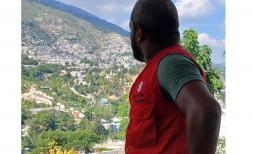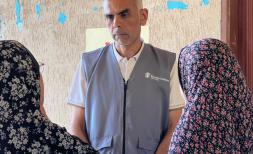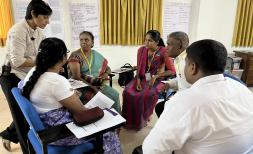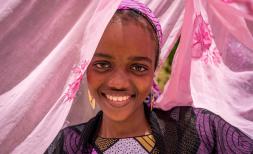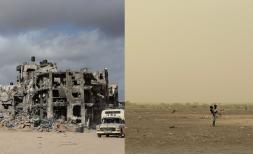Wellness Awareness in one of Africa’s Most Difficult Contexts
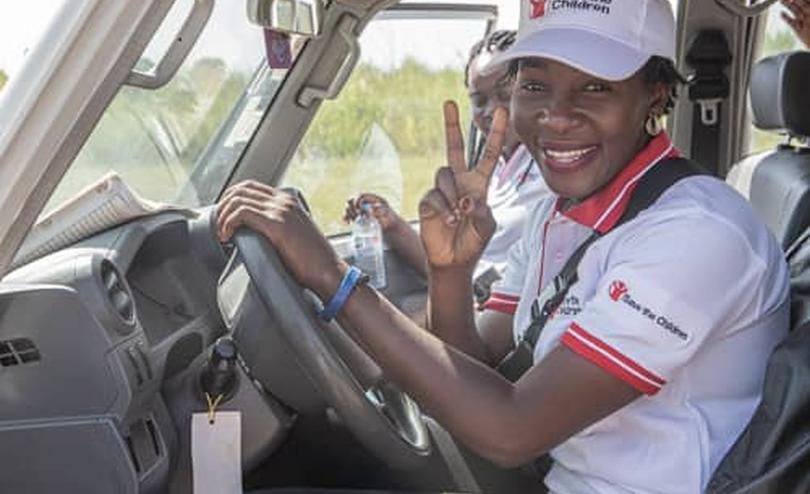
The Democratic Republic of the Congo (DRC) is a central African country with several active volcanos, rainforests, two great lakes, and the largest natural reserve on the continent. Yet, on any given day, populations can experience a sudden wave of violence, disease outbreak, or natural disaster. To deliver lifesaving aid to affected communities, humanitarian workers are right there with them, not as distant observers but as victims themselves to many of the crises.
The Ituri province, located in DRC’s mineral rich east, is known as the primary theatre for humanitarian response. It is home to the most frequent and diverse conflicts as well as an ongoing hunger crisis, with more active armed groups than any other province in the country. There, accessing populations in need can be incredibly challenging, often requiring day-long trips. Save the Children operates in this high-conflict area through its offices in Bunia, a town with paved roads, nightclubs, lakes, and fish sellers. But, just a few kilometres away, armed groups can attack at any given time. Though, the violence here isn’t like in the movies as active shooting is rare. Instead, small groups will appear when least expected, burn pastures, kidnap people and ruin the lives of communities – these attacks are frequent and often without warning.
For humanitarian workers operating in this context, it is common to grapple with a range of emotions as we are tasked with the delivery of lifesaving programmes to the high number of children suffering from malnutrition, speaking with internally displaced children living alongside hundreds impacted by crisis in the same environment where they are expected to learn, visiting areas where children are separated from their parents, and supporting communities who have just had their entire lives upended due to conflict or natural disaster.
Hunger is the reality for roughly 27 million people in the Democratic Republic of Congo. When we see photos of children with their bloated bellies – victims of extreme hunger – it’s important to remember that the arms in those photos, holding those children, are our staff and colleagues that we work with every single day.
Save the Children in DRC takes special care to provide a series of wellness activities, intended to slightly offset some of the daily stress factors, build team unity and cohesion, and support staff as they conduct this important work. We have been able to facilitate wellness activities such as team sports days, wellness walks, games, team dinners, and lake trips amongst staff. Additionally, we are strengthening our focus on professional development to provide staff with training opportunities to keep them learning and motivated.
As a humanitarian worker, wellness is imperative to being able to provide assistance to these communities, and team building is essential. This is because once you work in this context, you begin to realise that the victims of these crises are not just unknown members of the population, they could be the daughter, father, or aunt of a team member. This pushes our solidarity and our ability to do everything we can to provide every resource available to advocate for their cause.
Women in this industry are particularly vulnerable to negative impacts on their mental health and psychosocial wellbeing as they are often faced with heightened risks and challenges, not only related to gender-based violence and discrimination, but also in their roles as mothers and caretakes at home.
Below are some tips for other humanitarian organisations and our fellow Save the Children country offices if they are looking to implement a wellness programme for staff:
Understand teambuilding: if you come in as a leader you need to be humble. Listen, then consider points of convergence, instead of funding. The essential thing is ensuring that teams feel heard as many of our activities don’t cost money...
Create forums for spending time together, or share a meal, even meals that people bring from home.
Look at ways to make people feel good: Provide small incentives. For example: if the teams are in the field, we provide family weekends which do not require a lot of resources but provide teams with at least one additional day to share with their families after visiting complex situations.
Give importance to the work provided by the least operational staff: We provide internal forums and training for our drivers, for example, this will ensure that all our internal staff feel valued.
Eliminate the hierarchy: during our wellness meetings there is no you do this or that we’re family – it helps us operate as people during urgent responses, not just as colleagues.
The world may feel fractured right now, but our humanitarian action in the DRC is evidence that unity and solidarity are still alive and strong. As individuals our impact is limited, but together we have tremendous power. Just as #ItTakesAVillage to raise a child, it takes a whole community to help people in need.
Join us in celebrating our humanitarian heroes, by sharing this post or engaging with OCHA’s World Humanitarian Day #ItTakesAVillage campaign on Twitter.
